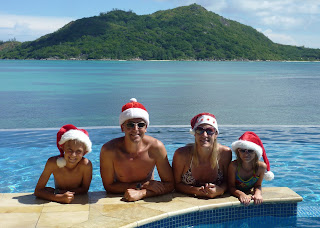
I see that it has been over 6 months since I last posted anything on our blog. To be honest it has been a very crazy and hectic time and although I have contemplated posting many times, I haven't really known where to start. The problem is the longer I let it go the more there is to tell so I might as well get started.
I think the best place to start would be on August 10, 2010. That is the day we found out that our son Dillon has Type 1 Diabetes. I took him in to see the doctor because he had been wetting his bed on a nightly basis for over a week. This wasn't like him and he seemed helpless to control it. I figured he had a bladder infection and might need some antibiotics. After a quick blood test we were told his blood sugar was literally off the charts and I needed to get him to the hospital immediately.
Up until that moment my knowledge of Diabetes was very limited. I knew that diabetics need insulin and that they have trouble controlling blood sugar. I also knew that there were two different types of Diabetes but I did not know the difference between them. There is no family history of Diabetes in my or Cassandra's immediate family, so it wasn't something we thought much about.
As you can imagine we have learned quite a bit on the subject.
Dillon has Type 1, formerly known as Juvenile Diabetes. People with Type 1 are incapable of producing insulin in their pancreas any more and are completely dependant on insulin injections. At some point, usually after contracting a virus of some sort, the antibodies that are combating the virus for some unknown reason decide to attack the cells in the pancreas that produce insulin. From the moment that process begins you are a diabetic for life. There is no way to stop the antibodies from completely destroying all the insulin producing cells.
With Type 2 diabetes, the most common form which affect 90% of diabetics, their bodies still produce insulin, but the cells are resistant to taking it in. Often, but not always, type 2 is a result of poor diet, lack of exercise, and/or family history. Many type 2 sufferers can manage or reverse the condition without the need for insulin injections. This is not the case with type 1. Without daily injections of insulin type 1 sufferers cannot survive.
Dillon was in the hospital for 3 days in Gaborone until his blood sugar was relatively stabilized. Then he was transferred to a hospital in Pretoria South Africa. He spent another 3 days there, where the main focus was on him learning how to properly manage his diabetes. He learned to do all of his own injections, and take his blood sugar readings. We also learned a lot about carbohydrates and how to deal with low blood sugar problems.
Dillon now tests his blood sugar and gives himself insulin injections a minimum of 4 times per day. He is coping very well and all of this is now become just part of his daily routine.
As you can imagine Cassandra and I were terribly shaken by the knowledge that our son now has a lifelong condition. As a parent you want to protect and alleviate your child's problems, but this was something we had no control over. The best course of action was for us to learn all we could and help Dillon manage his diabetes properly. What has really made it easier for us is the way Dillon has dealt with it. He has shown us a strength of character and resolve we are so proud of. Seeing him deal with his diabetes so well has helped us realize that he will be OK, and that with proper management he will live a long and healthy life.



 We took a 10 day trip to the Seychelles over Christmas. The Seychelles is a small country consisting of a few small islands in the Indian ocean north of Madagascar.
We took a 10 day trip to the Seychelles over Christmas. The Seychelles is a small country consisting of a few small islands in the Indian ocean north of Madagascar. I see that it has been over 6 months since I last posted anything on our blog. To be honest it has been a very crazy and hectic time and although I have contemplated posting many times, I haven't really known where to start. The problem is the longer I let it go the more there is to tell so I might as well get started.
I see that it has been over 6 months since I last posted anything on our blog. To be honest it has been a very crazy and hectic time and although I have contemplated posting many times, I haven't really known where to start. The problem is the longer I let it go the more there is to tell so I might as well get started.